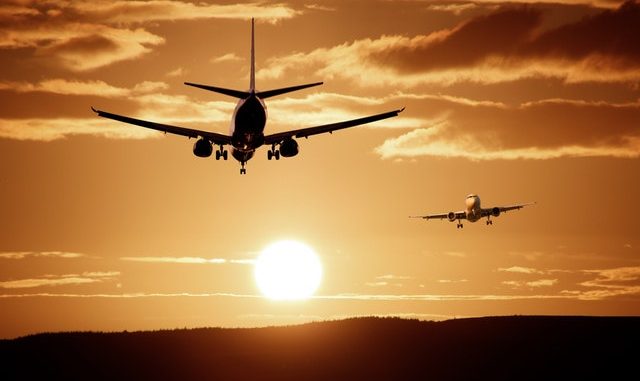
Opening Insights
Pocket Wisdom Insights (PWI) invites you to explore the following Co-Lab Blog.
This blog features parts of an insightful article featured outside of the PWI Co-Lab,
by Alan Tovey on August 7, 2017, published by The Telegraph.
We have republished this content in respect of the author’s vision, message and research.
Informational Insights
It sounds incredible but airliners without a human at the controls could be flying passengers through the skies with in a decade - saving airlines billions by doing away with pilots and cutting ticket prices for passengers.
Research by analysts at UBS claims the pilotless aircraft could generate $35bn a year in savings for airlines.
The money would come not only from eliminating highly paid pilots who require expensive training, but by making aircraft safer by having them controlled by computers which are less likely to make errors. US safety data attributes three quarters of accidents to human error.
Flights would also be more efficient because of the exacting nature of they way they would be flown digitally, meaning less fuel would be used, and aircraft could be flown closer together, allowing air space to be more crowded.
Finally, aircraft would be able to be used more intensively, as they would not require rest days that pilots currently get.
UBS analysts Jarrod Castle and Celine Fornaro point out that similar “technology to remotely control military drones already exists and this could be adapted to civil applications”.
They predict that the first aircraft to embrace self-flying technology will be those carrying only cargo, first removing one of the two pilots normally in the cockpit, then eventually replacing them altogether. Private jets are expected to follow, then helicopters, with airliners the last to adopt the new technology.
However, the research warns that while the savings generated by cutting out pilots might be attractive to to airlines - the concept isn’t so warmly welcomed by passengers.
UBS’s survey of 8,000 people found that 54pc of them wouldn’t want to take a pilotless flight even if it were cheaper and only 17pc said they were likely to - a much lower level than those willing to travel in a driverless car.
British pilots’ association Balpa also warned said it had “concerns” about “the excitement of this futuristic idea” - but noted that cockpits are already highly automated. Currently technology means that the majority flights are under the control of autopilot and modern aircraft can land without a human taking the controls.
But when things go wrong, Balpa said people want a human in the cockpit.
“Automation already supports operations but every single day pilots have to intervene when the automatics don’t do what they’re supposed to,” said Steve Landells, Balpa flight safety specialist. “Computers can fail, and often do, and someone is still going to be needed to work that computer. Most of us own some sort of electronic device that can do amazing things – however, a human is still required to operate it.”
The British pilots' association warns that computers can crash and need humans to fix them
Balpa doubts truly pilotless aircraft will ever be a reality, with it more likely that pilots will control airliners remotely from ground stations - but even this might not be enough to reassure passengers.“Public perception is still uncertain when it comes to automation and many might still be uncomfortable knowing that their life is in the hands of someone sat in a control tower hundreds or thousands of miles away,” said Mr Landells. “Having a pilot on the aircraft who is as much at risk as the passengers is probably the surest guarantee of safety there can be.”
If regulators can also be convinced and airlines can get passengers on board with the idea of pilotless planes, UBS believes there will be further opportunities across the aerospace sector.
Cockpits typically make up 5pc of the total cost of an aircraft and this could rise with the greater technology required for computer piloted aircraft, meaning suppliers could increase their prices. They could also offer higher margin “flight by the hour” deals where airlines pay for flight time, rather than buy an airliner outright and pay for it to be serviced.
It could also radically alter the current airline sector, with flight by the hour deals lowering costs to entry by reducing the capital outlay needed for new planes and and cutting out expensive crew training. This could mean new players entering the sector, having a huge impact on established “legacy” airliners and even low-cost carriers who have cut costs to the bone.
Possibilities for Consideration
Take a moment and examine…
- As you reviewed the material above, what stood out to you?
- What is the potential impact, economically and/or socially?
- What action is needed to stop or support this idea?
- You may want to consider whether you:
- want to be aware of,
- should become supportive of,
- would want to be active in this topic?
Add Your Insight
I have been impressed with the urgency of doing. Knowing is not enough; we must apply.
Being willing is not enough; we must do.
LEONARDO DA VINCI
